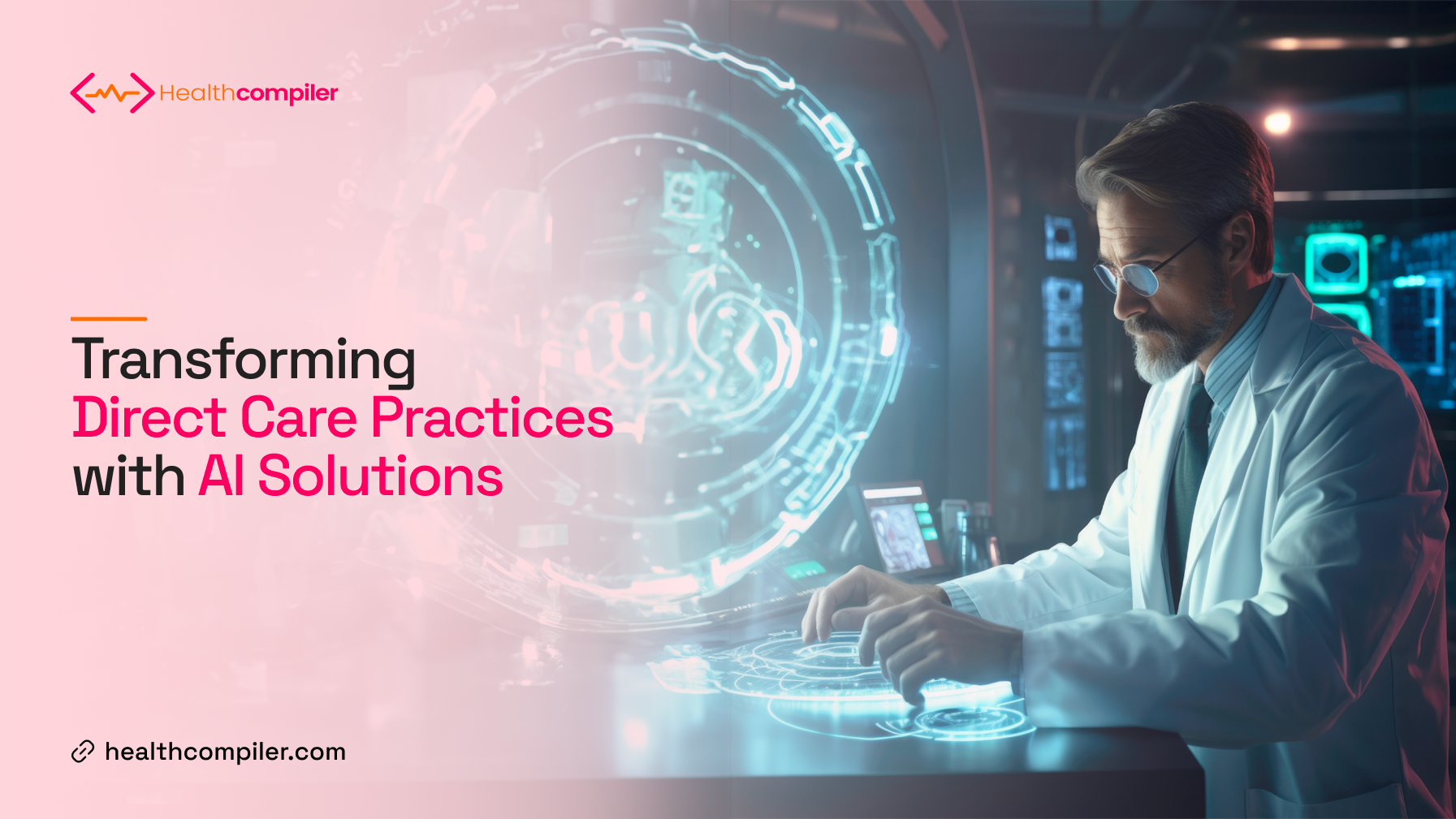Transforming Direct Care Practices with AI Solutions

In the rapidly evolving landscape of healthcare, Artificial Intelligence (AI) has emerged as a game-changer, especially for direct care practices. AI solutions offer the potential to dramatically enhance the quality of care, improve patient outcomes, and streamline operational efficiencies. This blog explores the multifaceted impact of AI on direct care practices, highlighting its benefits, applications, and the future outlook of integrating AI into the healthcare sector.
Introduction to AI in Direct Care
Direct care is the frontline of the healthcare system, offering comprehensive and continuous care to patients. However, direct care practices often face challenges such as heavy workloads, administrative burdens, and the need for personalized patient care. AI solutions are poised to address these challenges by automating tasks, analyzing vast amounts of data for insights, and supporting clinical decisions.
Enhancing Patient Care with AI
One of the most significant impacts of AI in direct care is the potential for improved patient care. AI algorithms can analyze patient data, including medical histories, lab results, and lifestyle information, to identify risk factors and predict health outcomes. This predictive capability allows direct care providers to offer proactive, personalized care plans, potentially preventing adverse health events before they occur.
AI-Powered Diagnostics
AI technologies, particularly machine learning models, have shown promise in diagnosing diseases from imaging studies with accuracy comparable to or, in some cases, surpassing that of human experts. In direct care settings, AI-enhanced diagnostic tools can aid in the early detection of conditions such as diabetic retinopathy, skin cancer, and cardiovascular diseases, facilitating timely intervention.
Virtual Health Assistants
Virtual health assistants, powered by AI, can provide 24/7 support to patients, answering health-related queries, reminding them about medications, and monitoring their health status. These assistants can alleviate some of the routine follow-ups and check-ins, allowing direct care providers to focus on more complex cases.
Streamlining Operations and Reducing Administrative Burdens
AI solutions can significantly reduce the administrative workload on direct care practices by automating routine tasks such as appointment scheduling, patient triage, and documentation. Natural Language Processing (NLP) technologies can extract relevant information from unstructured data, such as clinical notes, automating the creation of patient summaries and reducing manual data entry.
Optimizing Practice Management
By analyzing operational data, AI can help optimize appointment scheduling, predict patient no-shows, and manage patient flow more effectively. This optimization can lead to better resource utilization, reduced wait times, and improved patient satisfaction.
Supporting Clinical Decision-Making
AI can support clinical decision-making by providing direct care providers with up-to-date medical knowledge, guidelines, and evidence-based recommendations tailored to the patient's specific clinical context. Clinical decision support systems (CDSS) powered by AI can analyze the vast array of medical literature and patient data to suggest potential diagnoses and treatment options, helping clinicians make informed decisions.
Personalizing Patient Engagement
AI can tailor health communication and interventions to the individual preferences and needs of patients. By analyzing data on patient behavior, preferences, and social determinants of health, AI-enabled platforms can deliver personalized health education, nudges for preventive care, and support for chronic disease management.
Challenges and Ethical Considerations
While AI holds immense promise for direct care, it also presents challenges and ethical considerations. Data privacy and security are paramount concerns, as AI systems require access to sensitive patient information. Additionally, there's a need for transparency in how AI models make decisions to ensure they are fair, unbiased, and clinically valid. Ensuring the ethical use of AI and maintaining the human touch in healthcare are critical as we move forward.
The Future of AI in Direct Care
Looking ahead, the integration of AI into direct care is set to deepen, with advances in AI technologies leading to even more sophisticated applications. The future may see the development of AI systems capable of more complex diagnostic reasoning, integration with wearable health technologies for real-time monitoring, and even AI-assisted robotic procedures in direct care settings.
As AI becomes more integrated into direct care practices, ongoing education and training for healthcare providers will be essential to maximize the benefits of AI while navigating its challenges. Collaboration between technologists, clinicians, and policymakers will be key to creating a regulatory environment that supports innovation while ensuring patient safety and equity.
Conclusion
AI solutions offer a transformative potential for direct care practices, promising to enhance patient care, streamline operations, and support clinical decision-making. By embracing AI, direct care practices can not only improve health outcomes but also address the growing demands on the healthcare system. As we move forward, the thoughtful integration of AI into direct care will be crucial in realizing a future where healthcare is more efficient, effective, and patient-centered.



